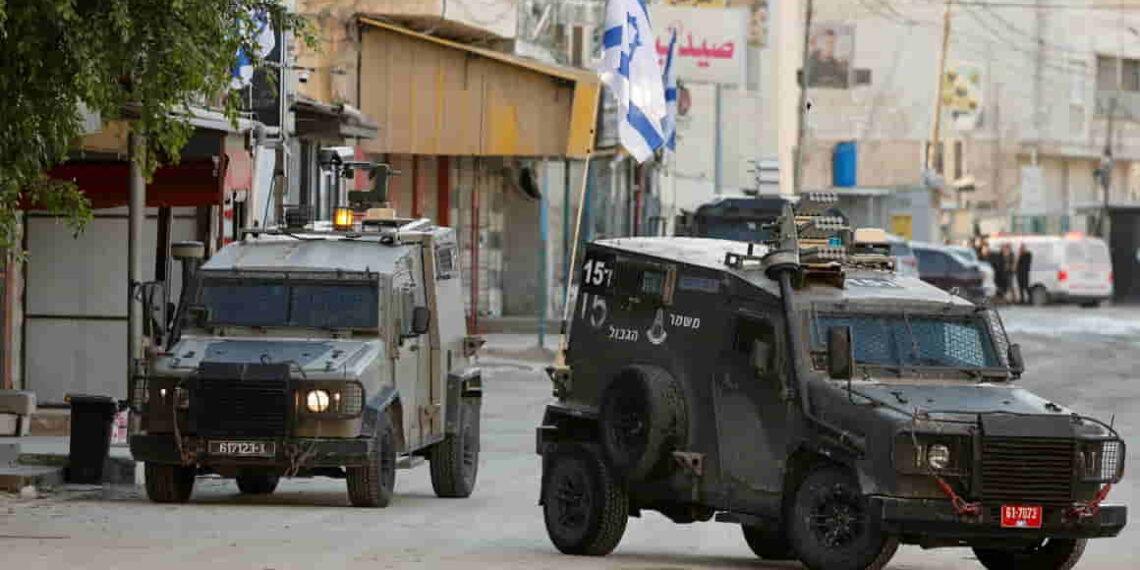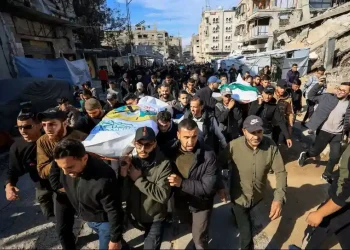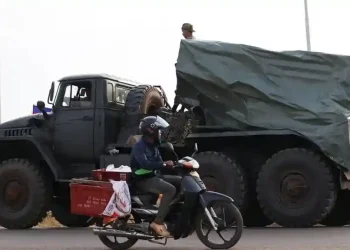Israel Launches Major Military Operation in West Bank Following Gaza Ceasefire
In a dramatic shift in military focus, Israel launched a significant military operation in the West Bank on Tuesday, killing at least 10 Palestinians, including a child, just two days after a ceasefire agreement took effect in Gaza. The Israeli military offensive, named “Iron Wall,” was ordered by Prime Minister Benjamin Netanyahu as part of an effort to “eradicate terrorism” in the city of Jenin, located in the northern part of the West Bank.
Operation “Iron Wall” and Escalating Violence
The operation saw a coordinated effort by Israel’s military, police, and the Shin Bet security agency. Israeli forces, including warplanes, snipers, and armored vehicles, surrounded the Jenin refugee camp, targeting militant groups and suspected terrorist sites. Video footage from local journalists revealed heavy military presence, including bulldozers entering the city.
The Palestinian Health Ministry reported at least 10 deaths and 40 injuries. Among the dead were nine men and a 14-year-old boy. While some of the casualties were confirmed as civilians, including one man who was shot and later died in a hospital, others may have been involved in combat.
Hamas, the Palestinian militant group, quickly condemned the operation and called for widespread resistance against Israeli forces throughout the West Bank.
Mounting Tensions and International Concern
This offensive comes after increased violence in the West Bank since the ceasefire between Israel and Hamas came into effect on Sunday. The United Nations Office for the Coordination of Humanitarian Affairs (OCHA) expressed concern over the recent surge in violence, particularly the killing of an unarmed 14-year-old Palestinian boy and attacks by Israeli settlers in Palestinian towns. Reports indicated that settlers torched vehicles, damaged property, and clashed with Palestinian residents, causing widespread destruction.
The international community has long condemned settler violence, and calls for accountability have grown louder. Israeli human rights group B’Tselem reported that settlers, with the cooperation of the Israeli military, attacked Palestinian communities in the West Bank. The situation escalated further after Israeli forces intervened in a settler attack in Al-Funduq, resulting in the injury of several people, including settlers and Israeli police officers.
Israeli Government’s Strategic Shift
Israel’s Finance Minister Bezalel Smotrich, a far-right nationalist, stated that the security situation in the West Bank has now been incorporated into Israel’s broader “war goals.” This declaration aligns with a growing sentiment within Israeli leadership to take a harder stance on Palestinian resistance in both Gaza and the West Bank.
The violence, which has been intensifying since Hamas’ attack on October 7, 2023, has caused significant casualties on both sides. The UN recorded that at least 851 Palestinians have been killed in the West Bank and East Jerusalem since that date, while 34 Israelis, including both civilians and soldiers, have died in the region.
A Violent Aftermath
The violence in the West Bank has sparked fierce protests and calls for action. The Palestinian Islamic Jihad and other militant groups vowed to confront the Israeli military’s offensive through “all means necessary.” As Israeli forces continue to expand their operations, the international community remains watchful, with the UN and other organizations urging restraint to prevent further bloodshed.
The Israeli government’s ongoing military campaigns in both Gaza and the West Bank reflect a broader strategic objective to assert control over the region, but they have also escalated tensions with Palestinian groups and drawn criticism from international human rights organizations.
This article was rewritten by JournosNews.com based on verified reporting from trusted sources. The content has been independently reviewed, fact-checked, and edited for accuracy, neutrality, tone, and global readability in accordance with Google News and AdSense standards.
All opinions, quotes, or statements from contributors, experts, or sourced organizations do not necessarily reflect the views of JournosNews.com. JournosNews.com maintains full editorial independence from any external funders, sponsors, or organizations.
Stay informed with JournosNews.com — your trusted source for verified global reporting and in-depth analysis. Follow us on Google News, BlueSky, and X for real-time updates.














